Portugal/Mozambique: Governments step up dialogue ahead of 2026 bilateral summit
Mozambique: National Roaming Regulation, changes to the FSAU approved
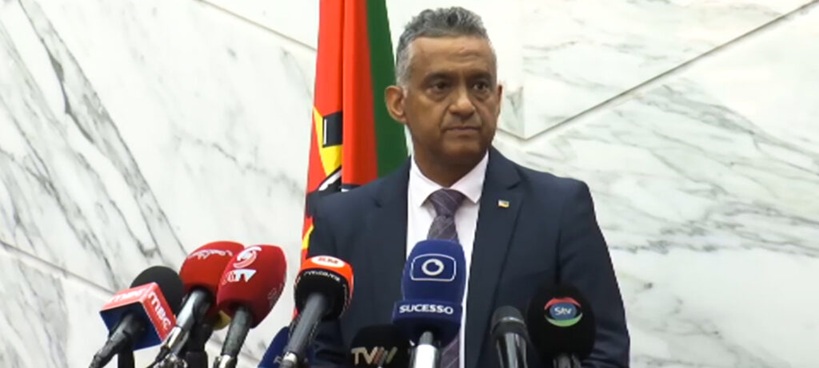
Photo: O País
The Council of Ministers yesterday approved the National Telecommunications Roaming Regulation, which allows subscribers to mobile telecommunications services to automatically access another operator’s network when they are in areas where their own operator does not have coverage.
Based on Law No. 4/2016, which promotes mandatory sharing of infrastructures, national roaming aims to ensure more efficient use of existing resources and extend the benefits of connectivity to all citizens, especially those living in areas without much telecommunications infrastructure.
The introduction of national roaming will significantly transform the current network coverage in Mozambique. Among the strengths of this initiative, the incentive for healthy competition between operators stands out.
In fact, by allowing new providers to enter the market without having to immediately build their own network, the regulation reduces barriers to entry and promotes a more dynamic and competitive environment.
During the session, the Council of Ministers approved the new Regulation of the Universal Access Service Fund (FSAU), which, among other things, broadens the scope of the FSAU, redefines the range of contributors to the fund and introduces new sources and forms of financing the FSAU.
It also establishes a new Network Infrastructure Ownership Regime and introduces a new model for allocating FSAU resources, which was created in 2006 with the aim of financing telecommunications programmes and projects within the scope of the universal access telecommunications service.
It is financed through contributions of 1% of the gross revenue of licensed telecommunications operators, holders of a Unified License, Class A License and Class B License, for the exercise of the activity of providing public telecommunications services.
The main projects financed by the FSAU include the connection of around 5 million citizens in the country to mobile phones, more than 10 million accesses through digital libraries, internet connection for more than 200 schools, digital television connection for more than 10 thousand families, connection, construction of digital libraries and computer rooms.
Progress in the first 100-days plan
The government has made several appointments and dismissals, including the replacement of the president of the Mozambique Railway and Port Institute and the Transport and Communications Development Fund. Of note is the appointment of Ambrósio Adolfo Sitoi and Paulo Zeca Ricardo to leadership positions in these institutions.
As part of the assessment of the first 100 days of government, the Executive announced that 95% of the 96 established indicators were “fully met”.
The plan includes actions with a direct impact on the lives of citizens, such as the regularization of pensions for combatants in Niassa, the start of construction of 6,000 houses for young people in Maputo and the launch of two ships to strengthen national maritime transport.
Other highlights included the launch of a petrochemical city project in Vilankulo, the approval of the Coral Norte project in the Rovuma basin, and the inauguration of a sports complex in Matutuine. In the context of the celebrations of the 50th anniversary of National Independence, the government announced the official launch of the Flame of National Unity.
Also noteworthy were the launch of a petrochemical city project in Vilankulo, the approval of the Coral Norte project in the Rovuma basin, and the inauguration of a sports complex in Matutuine.
In the context of the celebrations of the 50th anniversary of National Independence, the Government announced the official launch of the Flame of National Unity.
However, the country faces serious challenges due to the 2024-2025 rainy and cyclonic season. To date, the effects of cyclones such as Chido, Dikeledi and Jude have resulted in 313 deaths, more than 1,200 injuries, and more than 1.8 million people affected, with hundreds of thousands of homes partially or totally destroyed.
Health strike and call for dialogue
Responding to the press, the government commented on the strike that affects around 80% of health units, reiterating its commitment to open dialogue with health professionals. “We believe that, with common sense and constructive interaction, it is possible to find solutions without resorting to strikes that harm the population,” the spokesperson said.
Regarding the difficulties in circulation due to the rains and also the situation concerning road tolls, including those administered by Revimo, the government said that it is studying balanced measures to restore normality. “We need to ensure that solutions adopted today do not generate new problems tomorrow,” it stressed.



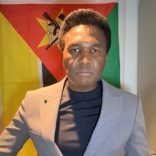
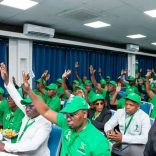

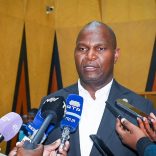
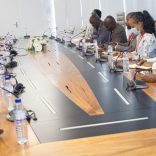





Leave a Reply
Be the First to Comment!
You must be logged in to post a comment.
You must be logged in to post a comment.